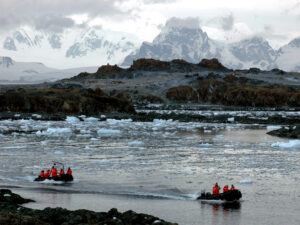Ancient Antarctic Ice Core May Unlock 1.2 Million Years of Climate Secrets

In a groundbreaking discovery, scientists in Antarctica have successfully extracted a 2.8-kilometre-long ice core believed to contain air bubbles and particles dating back 1.2 million years. Retrieved under extreme conditions with temperatures plunging to -35°C, this ancient ice sample could provide crucial insights into a pivotal period in Earth’s climate history. Researchers aim to analyze the core to better understand past climate shifts and their possible links to near-extinction events in human ancestry.
Historic Ice Recovery and Its Significance
As reported by BBC News, the ice core was drilled from Little Dome C, a site located on the Antarctic Plateau at nearly 3,000 meters elevation. Led by the Italian Institute of Polar Sciences and supported by scientists from ten European countries, the project spanned four Antarctic summers.
The extracted ice contains air bubbles, volcanic ash, and other particles, effectively preserving a snapshot of Earth’s atmosphere from up to 1.2 million years ago. Scientists are particularly interested in its potential to shed light on the Mid-Pleistocene Transition—a period 900,000 to 1.2 million years ago when Earth’s glacial cycles lengthened from 41,000 to 100,000 years. Understanding this shift may help determine whether it correlates with a significant population decline among early human ancestors.
Scientific Analysis and Goals
To ensure preservation, the ice core was transported under freezing conditions, cut into one-meter sections, and distributed to research institutions across Europe for detailed analysis. Scientists hope to identify patterns in greenhouse gas levels and temperature fluctuations from this era, which could refine future climate models.
Professor Carlo Barbante, a lead researcher from Ca’ Foscari University of Venice, emphasized to BBC News the importance of studying ancient air samples and volcanic ash trapped within the ice. This analysis could provide a deeper understanding of Earth’s climatic history and its impact on early human evolution.
The data obtained from this ice core is expected to be instrumental in understanding past climate changes, offering valuable insights into how these transformations shaped the planet and influenced the development of life on Earth.








